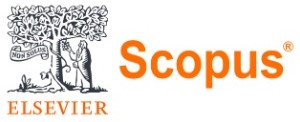Mocha Dick (the graphic novel): another island in the archipelago of the whale myth
Julio I. Gutiérrez García-Huidobro
ABSTRACT
This paper intends to explore the re-writing of the legend of Mocha Dick, done by Ortega and Martínez. In their work, they use comics’ narrative resources to blend the tale of the big white whale with mapuche mythology, some testimonial chronicles, and Melville’s famous novel. Through the study of diverse narrative resources from comics, it is intended to demonstrate how the text is constructed so that it gives a local revision of the legend of the whale. Hence, the aim is to show that Mocha Dick is not an adaptation but an autonomous appropriation which expands in complexity the myth that Reynolds and Melville gave birth.
KEYWORDS: graphic novel; semiotics; narratology; comparative literature; theory of adaptation
Keywords:
References: REFERENCIAS
Bortolotti, G.; Hutcheon, L. “On the Origin of Adaptations: Rethinking Fidelity Discourse and “Success”-Biologically”. New Literary History 38 (2007): 443-458. [ Links ]
Chase, Owen. Narrative of the most extraordinary and distressing shipwreck of the whale-ship Essex, of Nantucket; which was attacked and finally destroyed by a large spermaceti-whale, in the Pacific Ocean; with an account of the unparalleled sufferings of the captain and crew… New York: W.B. Gilley, 1821. [ Links ]
Even-Zohar, Itamar. “Polysystem theory”. Poetics Today, Vol. 1, nº 1/2: 1979. Pp. 287-310. [ Links ]
Hutcheon, Linda. A theory of adaptation. Taylor and Francis: London, 2006. [ Links ]
Gutiérrez G-H, Julio. “El paseo Ahumada” de Enrique Lihn, adaptado al cómic por Liván: “affordances” y tensiones en el proceso de adaptación”. Revista Signa vol. 28 (2019): 669-697. [ Links ]
Gutiérrez G-H, Julio. “Tres sutilezas en la adaptación gráfica de Peter Kuper de La Metamorfosis, de F. Kafka” . J. Gutiérrez (Ed.): Refracciones: nueve miradas sobre discurso y medios. Santiago: Cuarto Propio, 2017. Pp. 93-107. [ Links ]
Melville, Herman: Moby Dick o la ballena blanca. De Bolsillo: Buenos Aires, 2007. [ Links ]
Montecino, Sonia: Mitos de Chile: diccionario de seres, magias y encantos. Sudamericana: Santiago, 2003. [ Links ]
Martínez, G.; Ortega, F. Mocha Dick: la leyenda de la ballena blanca. Norma: Santiago, 2012. [ Links ]
Pardo, Pedro. “Teoría y práctica de la escritura filmoliteraria (a propósito de las reescrituras de The turn of the screw)”. En Pérez B., José: Reescrituras fílmicas. Nuevos territorios de la adaptación. Ed. Universidad de Salamanca: Salamanca, 2010. Pp. 45-102. [ Links ]
Plath, Oreste. Geografía del mito y la leyenda chilenos. Grijalbo: Santiago, 1994. [ Links ]
Porter Abbot, H. The cambridge introduction to narrative. Cambridge University Press: Cambridge, 2002. [ Links ]
Postman, Neil. “El humanismo de la ecología de medios”. En Scolari, Carlos: Ecología de los medios: entornos, evoluciones e interpretaciones. Gedisa: Barcelona, 2015. Pp. 97-107. [ Links ]
Reynolds, Jeremiah. “Mocha Dick: Or The White Whale of the Pacific: A Leaf from a Manuscript Journal”. En Clark, Lewis: The knickerbocker: or Ney York Monthly Magazine vol. 13, mayo 1839: 377-392. [ Links ]
Saccomano, G.; Durañona, L.; Breccia, E. Moby Dick. Record: Buenos Aires, 1978. [ Links ]
Sanders, Julie. Adaptation and appropriation. Routledge: London, 2006. [ Links ]
Scolari, Carlos . “Ecología de los medios: de la metáfora a la teoría (y más allá)”. En Scolari, Carlos : Ecología de los medios: entornos, evoluciones e interpretaciones. Gedisa: Barcelona, 2015. Pp. 15-42. [ Links ]
Sienkewicz, Bill. Moby Dick. Classics Illustrated n°4. Berkeley Publishing Group: New York, 1990. [ Links ]
Strate, Lance. “A media ecology review”. Communication Research Trends, vol. 23 n°2, 2004. 1-48. [ Links ]
Vanoye, Francis. Guiones modelo y modelos de guión. Paidós: Madrid, 2011. [ Links ]
Wolf, Sergio. Cine/Literatura: ritos de pasaje. Paidós: Buenos Aires, 2001 [ Links ]
12345
Received: September 01, 2020; Revised: March 31, 2020; Accepted: November 13, 2020
Este es un artículo publicado en acceso abierto bajo una licencia Creative Commons







